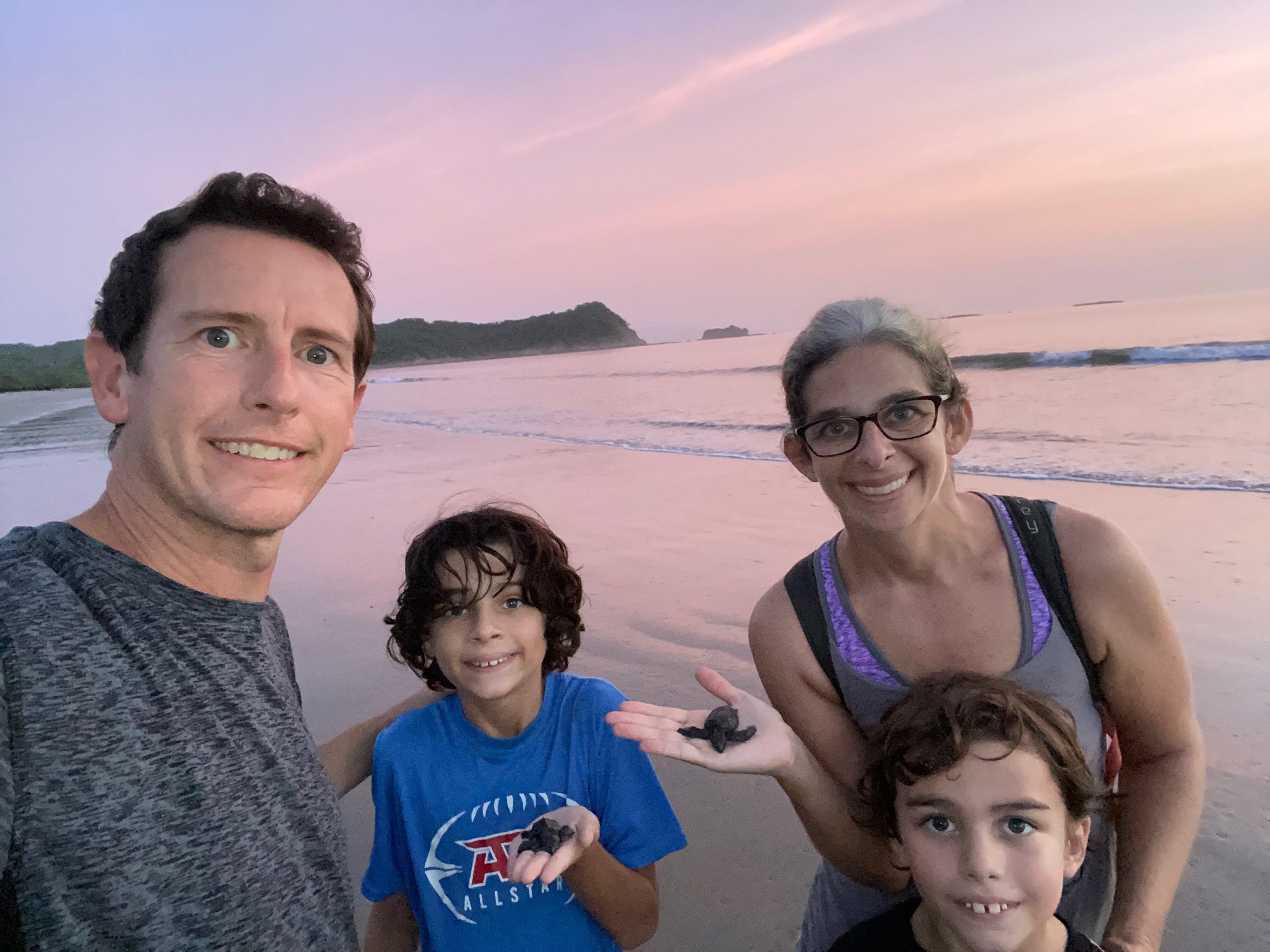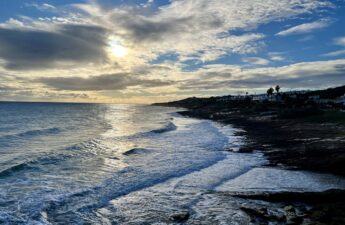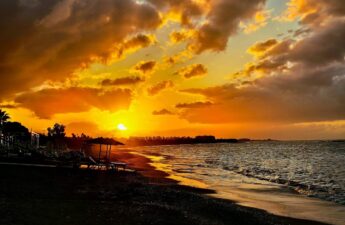People ask us how we can afford our new nomadic lifestyle. The answer is that it is much more affordable than our old lifestyle.
Money. We need it for housing, clothing, food, transportation, and health. We want it to buy a big house, designer clothes, the latest gadgets, fancy food, and more.
We were making good money in Atlanta, but it was not buying happiness. We may never make as much money as we did when we were both working our 9-5 jobs, but we are ok with that. We will make enough money.
How We Reached Our Financial Goals.
What we did over the last decade to take this leap into our new lifestyle was intentional. We have been planning it for years. It is not something we would have been able to do if we had not set goals and achieved them. Here is what we did to drop out of the rat race and live on our terms:
- We saved a lot of money while we were working. On average, we saved about 35-45% of our income each year. We always maxed out our 401ks. We put money into other investment tools. We have a solid emergency fund. We were able to do this by living below our means and being budget-conscious. We joke that our date-nights involved Groupons, but every little bit helps.
- We use reward credit cards that help offset the cost of some of the travel that we do. The key is that we always pay the balance of our credit cards off every month, so we do not pay the high-interest rates.
- We are fortunate because neither of us graduated from college or grad school with school debt.
- We invested in rental properties that are now making income for us. Michael worked hard over the last 10 years (and is still working hard) to build up a real estate portfolio that he manages.
- We do not buy new cars. We buy used cars and pay for them outright. We just need cars to get us from point A to point B. Car values depreciate quickly, and it never seemed like a worthwhile thing to spend our money on.
- Our house was decorated like a college apartment (but it was clean). We did not spend thousands of dollars buying expensive furniture and decorations for our house. We love watching HGTV and going over to our friends’ beautifully decorated houses, but it was never a priority for us. Plus, with two young boys, it did not make sense to have nice things.
- We said no to people often when it did not fit our plan or budget. To reach our goal, we had to put FOMO on the back burner. We have friends who take expensive vacations, go to concerts and fancy meals often. We chose to do those things occasionally, but if we tried to keep up with our friends we would not have reached our financial goals.
Our Nomadic Lifestyle is Cheaper Than our Atlanta Lifestyle.
We need money to travel, but we do not need as much money to travel the world with our kids as we do to live in Atlanta. We were skeptical of traveling families who boasted that they lived on so little. It was hard to imagine spending less while we were stuck in a consumer-driven society. We are now seeing that it is possible.
In the first seven months of our travels in 2020, we spent 62% less than we did in Atlanta during the first seven months of 2019. Here is a breakdown of how we did it.
| Item | Percent Saved 2020 vs. 2019 |
| Lodging | 104% (we rent our house out for more than our mortgage, so we are making money) |
| Utilities | 55% (this includes electricity, gas, water, sewer, internet, subscriptions. Many of these things are included in our rent when traveling) |
| Grocery | -6% (Groceries were generally cheaper in Central America, but we eat more meals at home these days) |
| Dining out | 22% (We eat out less because of COVID) |
| Entertainment/Kids Activities | 54% (We do not have expenses for school aftercare and sports activities. We have done zip-lining, surf lessons, horseback riding and more while traveling, so we are not missing out on fun) |
| Merchandise | 65% (We live out of suitcases, so we cannot acquire things. Also, Amazon did not deliver to Nicaragua. That helped us maintain a minimalist mindset) |
| Healthcare | 75% (We paid for U.S. health coverage through Michael’s work until April. We did not have health insurance while in Nicaragua. We have been to the dentist and purchased some medicines abroad. Healthcare is much cheaper outside the U.S. We now have a global health insurance plan that is not comprehensive, but it will cover us for accidents in the U.S.) |
| 401K Contributions | 56% (This is one we would like to keep contributing to, so the savings here is not optimal) |
| Travel | 87% (taking trips to destinations, Airbnb, airfare, etc. – traveling is our lifestyle now, so we do not have to limit our travel to expensive 1-week vacations two times a year) |
| Transportation | -14% (We owned our cars in the U.S., so the cost was minimal. We spend more money to get around while traveling full time) |
| Life Insurance | 25% (Judy evaluated her life insurance last year and was able to get a cheaper policy. We also got rid of her long term disability insurance coverage) |
How We are Spending Less.
Housing is a big kicker. We did not overextend ourselves when we bought our house in Atlanta, but our home in Atlanta is much more expensive than the housing we stay in while traveling. Our housing in Central America was not luxurious, but it was comfortable. We are happy to make the trade to smaller and cheaper accommodations as we travel.
Utilities for our house in Atlanta are expensive. An average bill for cooling our house in the summer is around $300/month. Many of the places we have stayed on our trip include utilities. In our last house in Nicaragua, we paid for electricity and water, but the cost is considerably less than our bills in Atlanta.
We spend about the same amount on groceries as we did in Atlanta, but that is because we eat at home about 95% of the time, breakfast, lunch, and dinner. Our expenses for eating out have gone down. Eating more home-cooked meals and not having the option to pick pre-made sodium-filled meals at the grocery store has made us all feel better.
Our entertainment budget is way down. COVID is a factor for that, but even pre-COVID when we were out and about exploring we were spending less than what we did in Atlanta. When we arrived in March in Nicaragua we were taking Spanish lessons, the boys were taking surfing lessons, we all joined a gym and we were still spending less than we did on activities in Atlanta.
We are not partying on yachts, staying at all-inclusive hotels, or flying first class. Maybe that is what people imagine when we tell them about our plans. We are living in local communities and learning as much as we can from them. We are traveling on a budget.
We are living with less money and fewer things, but we are spending more time together, having amazing adventures, and making lasting memories.




Great post! We are taking similar steps so that we can live a similar existence. It’s amazing how much less expensive it is to live in many other places in this world. Thanks for sharing and showing us that it is possible.
We are glad you found the information helpful. Please reach out if you have any questions.